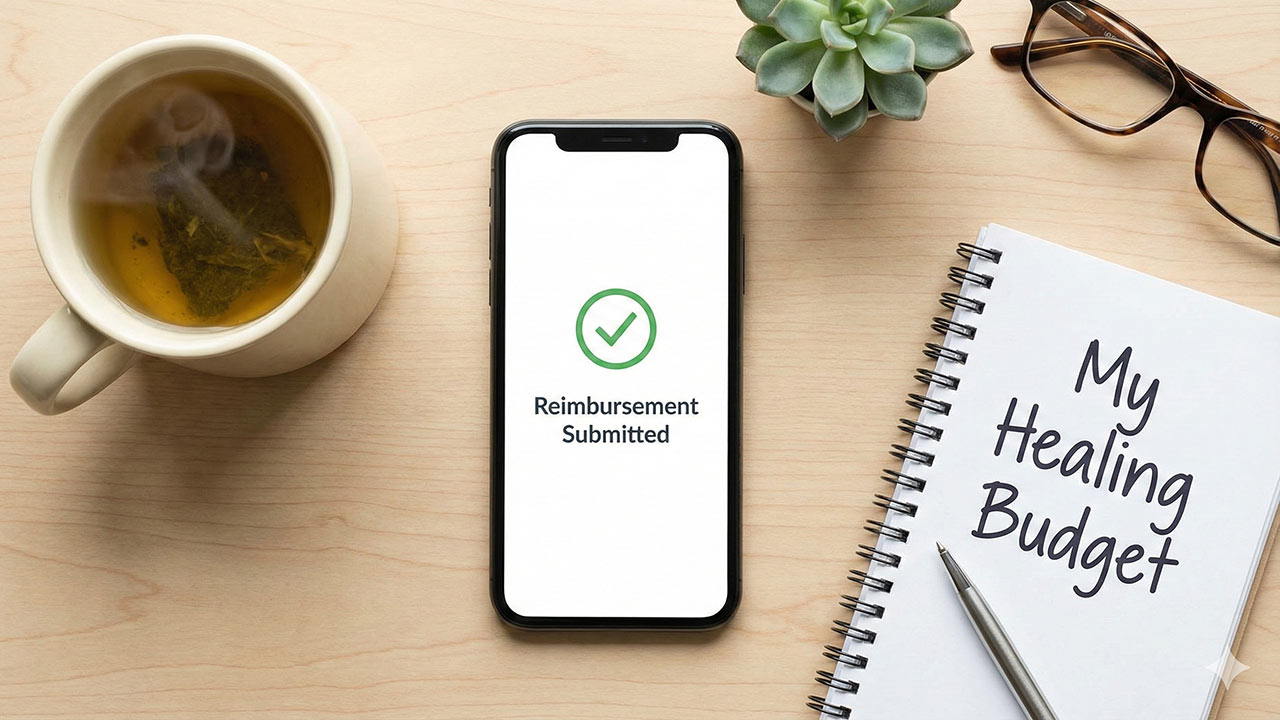Living with Attention Deficit Hyperactivity Disorder (ADHD) can be challenging as it can affect every aspect of a person’s life. However, those living with ADHD can transform their lives for the better with the right therapy.ADHD therapy is a comprehensive approach that uses several techniques to help manage ADHD symptoms and improve overall functioning.
This article explores how ADHD therapy improves attention, reduces impulsivity, and enhances executive functioning. Some of the techniques used in this therapy include cognitive-behavioral strategies and medication management.
ADHD therapy addresses individual needs and equips people with essential skills and strategies to thrive in school, work, and personal relationships.
Understanding ADHD: What is it and Who Does it Affect?
Attention Deficit Hyperactivity Disorder (ADHD) is a neurodevelopmental disorder characterized by a persistent pattern of inattention, hyperactivity, and impulsivity. This condition can manifest in various ways, impacting an individual’s ability to function in daily life.
While traditionally viewed as a childhood disorder, ADHD can continue into adolescence and adulthood, affecting people of all ages. The symptoms may vary; some individuals struggle primarily with attention, while others display more hyperactive behaviors.
Studies suggest that approximately 5% of children and 2.5% of adults worldwide are affected. It is essential to recognize that ADHD does not discriminate; it can affect individuals across all backgrounds, races, and socioeconomic statuses.
The disorder can present unique challenges, not only for those diagnosed but also for their families, educators, and employers. Understanding ADHD’s manifestations can help families and professionals foster a supportive environment.
Recent research shows that genetics plays an important role in the development of ADHD, with environmental factors also contributing. For example, prenatal exposure to certain substances, such as tobacco and alcohol, may increase the risk of developing ADHD.
Additionally, stressful home environments or adverse childhood experiences may worsen symptoms. Knowing these factors can help individuals and families seek appropriate support and treatment.
The Impact of ADHD on Daily Life
Living with ADHD can affect various aspects of daily life, from personal relationships to academic and professional performance.
Individuals with ADHD often experience difficulties with organization, time management, and prioritizing tasks. These challenges can lead to missed deadlines, unfinished projects, and feelings of frustration or inadequacy. Consequently, academic settings may become overwhelming for students with ADHD. They often struggle to keep up with their peers and lose self-esteem and motivation.
In the workplace, ADHD can present similar challenges. Adults with the disorder may not be able to focus on tasks and meet productivity expectations.
The impulsivity associated with ADHD can also result in hasty decisions or interruptions during meetings, which may be misinterpreted as a lack of professionalism or respect. These struggles can create a cycle of stress and anxiety and lead to conflicts with coworkers.
ADHD can also affect social interactions. Impulsivity and difficulty regulating emotions, which are symptoms of ADHD, may lead to misunderstandings or conflicts in relationships. Friends and family members might not fully understand the challenges posed by ADHD, which can lead to strained relationships.
Recognizing the impact of ADHD can help people develop strategies and interventions to manage symptoms and improve their quality of life.
Common Misconceptions about ADHD
Despite growing awareness about ADHD, several misconceptions persist in today’s world.
One myth is that ADHD is merely a product of poor parenting or a lack of discipline. This misconception undermines the complex neurobiological factors that contribute to the disorder and can lead to blame and stigma for families struggling to cope with ADHD-related challenges.
Another common misconception is that ADHD only affects children. While symptoms often present in childhood, many individuals also experience major challenges into adulthood. It is estimated that about 60% of children with ADHD will carry symptoms into their adult years. This misconception can lead to a lack of resources and support for adults struggling with ADHD.
Lastly, some people believe that ADHD is simply an excuse for laziness or lack of focus. This perception can be damaging, as it invalidates the genuine struggles faced by those with the disorder.
Individuals with ADHD often have to work hard to overcome their challenges, employing various strategies and coping mechanisms to manage their symptoms.
Raising awareness and dispelling these myths creates a more inclusive society that understands and supports those with ADHD.
The Benefits of ADHD Therapy
Therapy helps manage ADHD by offering individuals tools and strategies to cope with their symptoms effectively.
One of the significant benefits of ADHD therapy is improved self-awareness. Through therapeutic interventions, individuals can better understand their strengths and weaknesses. This self-awareness empowers individuals to recognize their triggers and develop personalized coping strategies.
Furthermore, therapy provides a structured environment for individuals to explore their feelings and behaviors. For instance, cognitive-behavioral therapy (CBT) helps individuals identify negative thought patterns and replace them with positive ones. This approach not only helps in managing ADHD symptoms but also enhances emotional regulation and resilience.
Through this therapy, individuals may find navigating social situations easier and maintaining healthy relationships. Additionally, ADHD also improves communication skills. Many individuals with ADHD struggle with social interactions due to impulsivity or difficulty interpreting social cues.
Through therapy, individuals can practice and refine their communication skills to make more meaningful connections with others. This aspect can be particularly transformative, as it helps individuals build a support network that supports personal development.
Different Types of ADHD Therapy Approaches
ADHD therapy encompasses a variety of approaches, each tailored to meet individual needs. One common therapeutic method is cognitive-behavioral therapy (CBT), which focuses on identifying and modifying negative thought patterns and behaviors.
CBT can help individuals develop coping strategies to manage symptoms; improve organization and time management skills; and enhance emotional regulation. This approach is often effective in children as well as adults.
Another therapeutic approach is behavioral therapy, which is beneficial for children with ADHD. This method emphasizes positive reinforcement and structured routines to encourage desirable behaviors. Parents and caregivers are often involved in the process. They learn techniques to help their children develop essential skills.
By establishing clear expectations and rewards, behavioral therapy can help improve behavior, academic performance, and social interactions.
Medication management is also a vital part of ADHD treatment for many individuals. Stimulant medications, such as methylphenidate and amphetamines, are commonly prescribed to help improve focus and reduce impulsivity.
Non-stimulant medications, like atomoxetine, are available for those who may not respond well to stimulants or prefer an alternative option. Combining medication with therapy can provide a comprehensive approach to managing ADHD symptoms.
How ADHD Therapy Transforms Lives: Success Stories
The transformative power of ADHD therapy is best illustrated through the success stories of those who have experienced significant changes in their lives.
For example, a young student named Emily struggled with focus and organization. She often felt overwhelmed in her school environment. After engaging in cognitive-behavioral therapy, she learned techniques to manage her time effectively and set achievable goals. Over time, her grades improved, and she gained confidence in her abilities.
Another inspiring story is that of Mark, an adult diagnosed with ADHD in his late twenties. For years, Mark struggled with impulsivity and maintaining stable employment. After seeking therapy, he began to understand how his ADHD impacted his work life.
Through a combination of medication and behavioral therapy, he developed strategies to manage his impulsivity and improve his communication skills. As a result, Mark secured a fulfilling job and established meaningful relationships with his colleagues.
Lastly, the story of a mother, Lisa, highlights the impact of ADHD therapy not only on the individual but also on the family unit. Lisa’s son was diagnosed with ADHD at a young age, and this condition presented great challenges for her family.
After participating in family therapy, Lisa learned effective parenting strategies that supported her son’s development and improved communication between them. The entire family benefited from this experience as it created a more harmonious home environment that helped Lisa’s son to thrive academically and socially.
These success stories exemplify the profound changes ADHD therapy can bring, inspiring hope for those on a similar journey.
Finding the Right ADHD Therapist for You
Choosing the right therapist can significantly enhance the effectiveness of treatment. To begin, individuals or their families should seek professionals with expertise in ADHD. This may include licensed psychologists; psychiatrists; or licensed clinical social workers specialized in neurodevelopmental disorders.
Checking credentials and seeking recommendations from trusted sources are ways to check whether a therapist has the right qualifications and experience.
Moreover, you should consider the therapeutic approach that resonates most with the individual. Different therapists may employ various techniques, such as cognitive-behavioral therapy, behavioral therapy, or family therapy.
Understanding one’s preferences and needs can guide the selection process. It may be beneficial to schedule initial consultations or interviews with potential therapists to discuss their approaches and gauge compatibility.
Lastly, you should evaluate the therapist’s communication style and rapport with the individual seeking help. Building a strong therapeutic alliance is essential for effective treatment, as it fosters trust and openness.
You should feel comfortable discussing their challenges and concerns with their therapist. Don’t hesitate to consult another professional if your first therapist is not the best fit. Finding the right therapist can lead to a more successful and fulfilling therapeutic experience.
Tips for Managing ADHD Symptoms Outside of Therapy
While therapy provides essential support for managing ADHD symptoms, individuals can also adopt strategies to enhance their daily functioning outside of sessions.
One effective approach is establishing structured routines. A consistent daily schedule can help individuals prioritize tasks, manage time more effectively, and reduce anxiety. Utilizing planners, calendars, or digital apps can aid in tracking appointments, deadlines, and important events.
Incorporating mindfulness practices into daily life can also be beneficial. Techniques such as meditation, deep breathing exercises, or yoga can help individuals increase self-awareness and improve emotional regulation.
Mindfulness encourages individuals to stay present and focused, reducing impulsive reactions and promoting a sense of calm. Regular practice can lead to improved concentration and reduced stress.
Additionally, building a supportive environment is crucial for managing ADHD symptoms. Individuals should communicate their needs to family members, friends, and coworkers to promote greater understanding and collaboration.
Creating designated spaces for work or study, minimizing distractions, and setting clear boundaries can also contribute to a more conducive environment for focus and productivity.
By actively employing these strategies, individuals with ADHD can enhance their quality of life and navigate daily challenges more effectively.
The Role of Family and Support Systems in ADHD Therapy
Family and support systems play an important role in the success of ADHD therapy. A strong support network can provide encouragement, understanding, and practical assistance.
Family members can participate in therapy sessions and gain insights into the challenges faced by their loved ones. This involvement not only strengthens family bonds but also enhances the overall effectiveness of treatment.
Education is another crucial aspect of family support. By learning about ADHD, family members can better understand the disorder and its implications. This knowledge equips them to provide appropriate support such as assisting with organization, offering encouragement, or simply being a listening ear.
Additionally, families can work together to establish routines, set realistic expectations, and create a structured environment that promotes success.
Finally, support systems extend beyond the immediate family. Friends, educators, and community members can also play an essential role in supporting individuals with ADHD.
Open communication and collaboration among all parties can foster a sense of belonging and acceptance. Those with ADHD can feel more empowered to embrace their unique strengths if they have a supportive network.
Embracing a Brighter Future with ADHD Therapy
ADHD therapy can transform lives by equipping individuals with the tools and strategies they need to thrive. Through a combination of behavioral approaches, medication management, and ongoing support, individuals can learn to navigate the challenges posed by ADHD and unlock their true potential.
Understanding ADHD and its impact on daily life is the first step toward creating a supportive environment for those affected. By dispelling misconceptions and acknowledging the unique challenges faced by individuals with ADHD, we can foster greater empathy and understanding within society.













